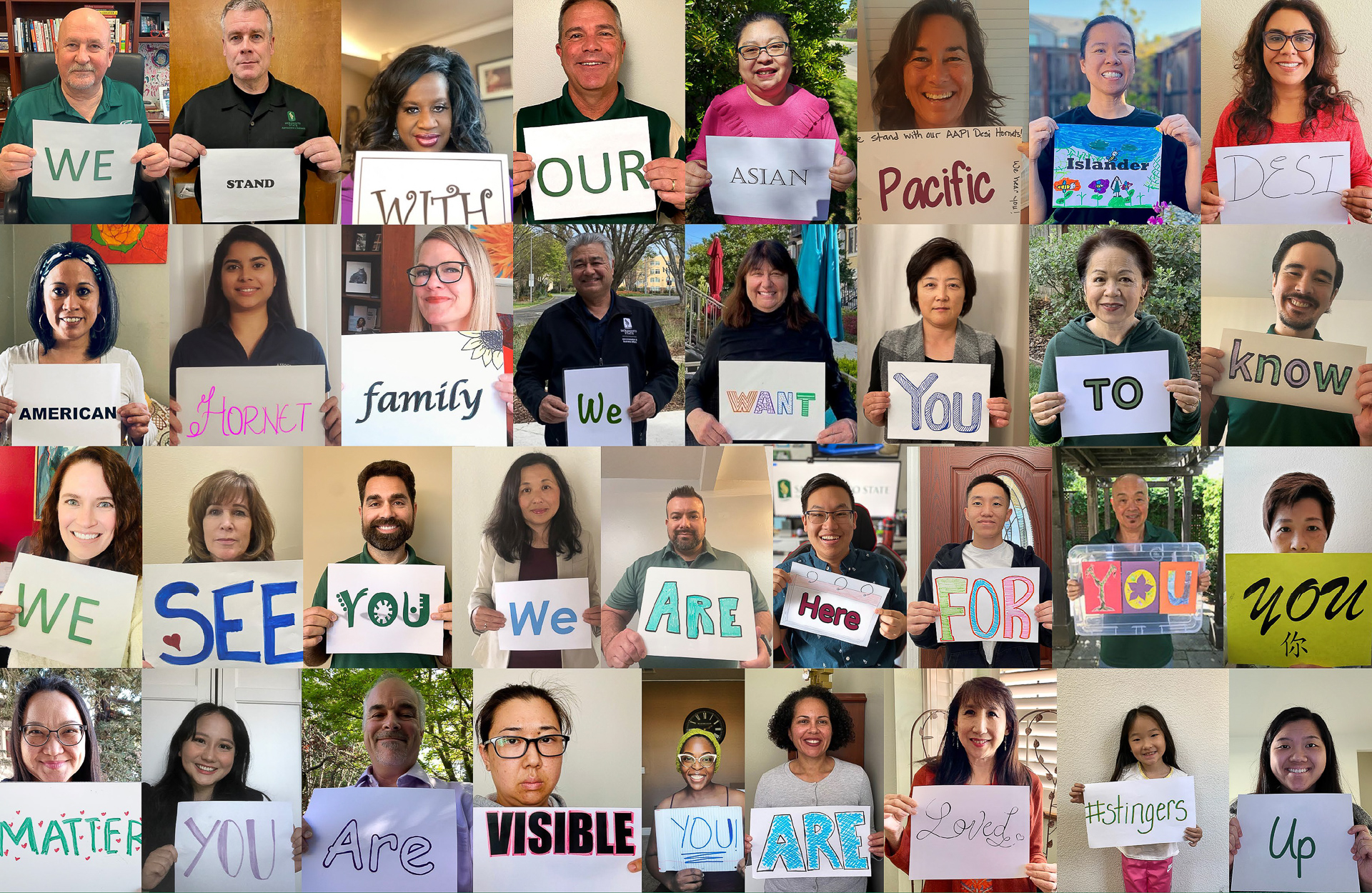Story Content
Members of campus community share feelings, concerns about surge in hate incidents against Asians

April 01, 2021
A Sacramento State administrator fears for her elderly mother’s safety amid a wave of anti-Asian violence across the country.
A Korean-American faculty member is wary of going to the grocery store by herself.
Students of Asian descent are concerned about whether they will feel comfortable returning to campus in the fall.
The surge in anti-Asian racism has hit home at Sac State, said participants in a virtual gathering March 30 sponsored by the University’s Student Academic Success and Educational Equity Programs (SASEEP).
The webinar, titled “The Beginnings of Healing,” was designed to help members of the Sac State community process anti-Asian sentiment and hate crimes that have been documented during the past year.
Hatred toward members of Asian communities is nothing new, said Ethnic Studies Professor Tim Fong, citing discriminatory and racist incidents, laws and policies dating back centuries. Racially motivated actions against Asians, however, have become more visible and pronounced during the COVID-19 pandemic, which is believed to have originated in China.
Tensions peaked in March following the shooting deaths of eight people, six of them women of Asian descent, in and around Atlanta. Cities across the United States have reported violent attacks and discrimination against Asians that appeared racially motivated.
Tuesday’s webinar was the first in a planned series of actions by Sac State to address the issue, said Chao Vang of SASEEP, who noted that more than 3,800 racially motivated incidents against Asians and Asian Americans have been documented since March 2020. Several such incidents have occurred in the Sacramento area.
“Something has to change,” Vang said.
Change begins with acknowledging the pain of community members who, directly and indirectly, have been affected by the incidents, said Jeannie Wong, the University’s senior associate vice president of Communications.
“We see you, and we acknowledge your pain, your anger, your sadness,” Wong said. “You are not invisible.”
Wong remembered seeing and hearing racial taunts when she was a young child, and noted that a teacher in an area high school recently used similar gestures in an online class with her students.
“Has nothing changed?” Wong asked.
She and other participants acknowledged burgeoning fears about the welfare of people of Asian descent, particularly those who are elderly.
“I am deeply affected” by reported incidents of violence toward older Asians, said Yee Thao, a Sac State Anthropology major and SASEEP student leader. For the first time, Thao said, “(I have) an unfamiliar feeling of fear when I think about my mom.”
Seunghee Wie, a professor of Family and Consumer Services who originally is from Korea, said she hesitates to go to the grocery store by herself, and her two American-born children are “cautious” when they leave the house. Many Sac State students and faculty “are afraid of what things will look like when we return in the Fall semester,” she said.
Wie said Sac State must become a touchstone for change and healing.
Associated Students Inc. (ASI) President Noah Marty cited the University’s ongoing work to become an “antiracist campus” as a major step forward.
Prabhjyot Shinh, student vice president of Finance, said ASI proposes several actions for the University to support people affected by racial discrimination and inequities. Those include creating a “safe open space” for students and holding a “circle of healing” where people can share ideas for supporting affected community members.
Existing University resources include the Asian Pacific Islander and Desi American (APIDA) Faculty and Staff Association, the Full Circle Project, and Student Health and Counseling Services.
Sac State President Robert S. Nelsen said the University must “examine where we are and be part of the change” toward ending racism.
The rising number of hate incidents against Asians “is sad,” he said. “It is horrific, and it has to stop.”
Media Resources
Faculty/Staff Resources
Looking for a Faculty Expert?
Contact University Communications
(916) 217-8366
communications@csus.edu